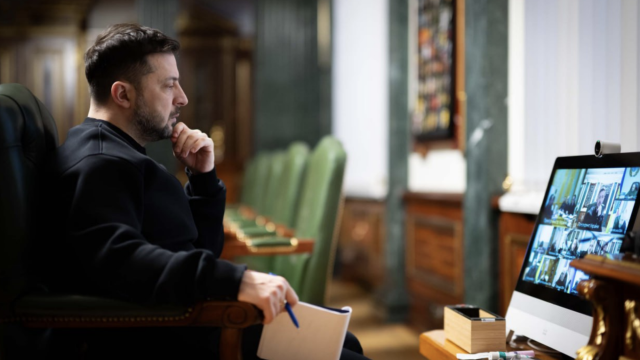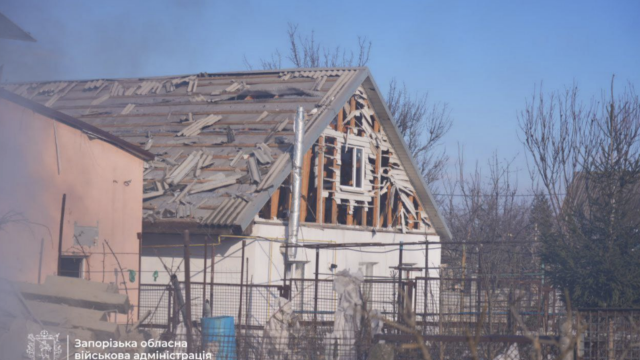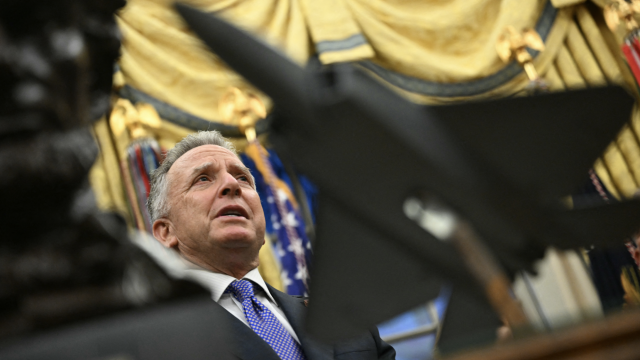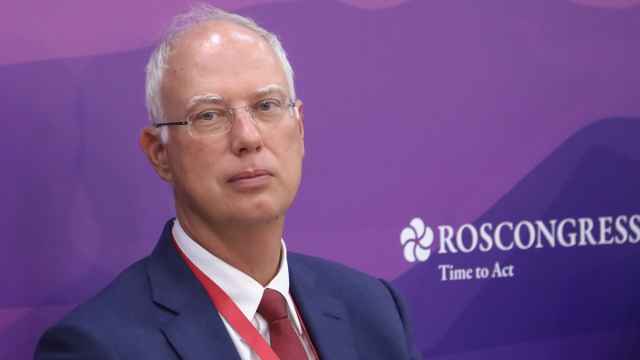The license of mid-sized Russian lender Admiralteisky Bank was revoked by the Central Bank on Friday, a day after security service raids and scenes of chaos outside one of its branches in Moscow, when riot police officers were called to stop angry depositors from attempting to break down a door.
Admiralteisky Bank was closed down because it did not have enough reserves, had processed large suspicious payments, did not observe anti-money laundering rules and this month “practically stopped serving its clients,” the regulator said in a statement.
When officials from the Central Bank searched the vaults of the lender they even found metal bars painted gold, industry website Banki.ru reported Friday, citing unidentified sources.
While dramatic, the implosion of Admiralteisky Bank — the country's 289th biggest bank according to Banki.ru — follows a series of similar banking failures as the Central Bank continues a drive to clean up the banking sector and the country's economic crisis squeezes the balance sheets of financial institutions.
The Central Bank has revoked the licenses of over 140 banks since its current head, Elvira Nabiullina, was appointed in 2013, and has spent billions of dollars on bailouts. Few of the owners or senior managers of the banks in question have faced charges in court, while many managed to flee abroad.
The Moscow Times has compiled five of the most spectacular Russian banking failures from the last two years, looking at what happened, whose fault it was and how big a bailout was required.
Trust Bank
Bailout: 127 billion rubles ($1.86 billion)
The collapse of Trust Bank, one of the country's top 40 banks, at the end of December 2014 amid panic among depositors obliged the authorities to provide the second biggest banking bailout in Russian history. The financial institution had used U.S. actor Bruce Willis in a high-profile advertising campaign that played on the bank's name — but could not cope with a crash in the value of the ruble, growing bad assets and an outflow of deposits. The Central Bank said at the time that Trust managers had siphoned off assets and falsified the bank's accounts. In April, criminal cases on fraud charges were opened against Ilya Yurov, the main shareholder of Trust Bank, and a series of top managers. Yurov was believed to have moved to London, according to Forbes magazine.
Master Bank
Bailout: 31.3 billion rubles ($458 million)
Even having Igor Putin, a cousin of President Vladimir Putin, on the board of directors could not save Master Bank. The lender's license was revoked in November 2013 with the Central Bank alleging the bank had violated money laundering legislation and processed large suspicious transactions. The bank required a bailout of 31.3 billion rubles — worth almost $1 billion at the time. Arrests for money laundering, and police searches of the apartments of top executives, took place at the bank the year before as part of a long-running investigation into a fraud scheme. The bank's chief executive, Boris Bulochnik, who was also believed to be the main shareholder, has not been charged over the bankruptcy and was reported to be living in Israel. In May, Russian investigators said that they had opened a criminal case into unidentified top managers at Master Bank.
Probusinessbank
Bailout: 67 billion rubles ($989 million)
The collapse of Probusinessbank, which counted several large Western funds among its investors, last month signaled the end of Russian financier Sergei Leontyev's banking empire and his Life financial group, which he had been building for over two decades. The Central Bank said there was a 67 billion ruble hole in the lender's balance sheet, citing a loss of capital, fictitious bonds and investments in poor quality assets. Leontyev was reportedly a devotee of innovative management strategies and was a fan of billionaire entrepreneur Richard Branson. Immediately after the announcement that Probusinessbank was being taken into administration by the Central Bank, Leontyev told employees that he was leaving the country. “Russia is not ready for such a financial group,” he wrote, Forbes reported.
Rossiisky Kredit
Bailout: 75.7 billion rubles ($1.1 billion)
The Central Bank withdrew the license of Rossiisky Kredit, the country's 45th largest financial institution by assets, in July — one of four banks controlled by Anatoly Motylyov to be closed down within a matter of days. The end of Motylyov's financial empire was accompanied by his own disappearance from the country — according to Russian media reports he simply stopped coming to work. Earlier this month, the Central Bank said it was sending material about the situation at Rossiisky Kredit to the Investigative Committee to check for possible criminal activities. The banking collapse was not Motylyov's first: in the 2000s he ran a lender called Globex that required a bailout during the 2008 financial crisis. Many of Globex's borrowers turned out to be shell companies Motylyov used to finance his real estate ventures, The Financial Times reported last week.
Mosoblbank
Bailout: 117 billion rubles ($1.7 billion)
The failure of Mosoblbank in May 2014 and the withdrawal of its license triggered the third largest banking bailout in Russian history — a bill for the taxpayer of 117 billion rubles. Owned by Andzhei Malchevsky and Alexander Malchevsky, Mosoblbank's collapse was also accompanied by the closure of two other lenders controlled by the father and son team: Inresbank and Finance Business Bank. Investigators looking into the case allege that from 2013, Mosoblbank's owners and senior management siphoned off 70 billion rubles from the lender. Former Mosoblbank chief executive Viktor Yanin was sentenced to a six-year prison term earlier this year, while deputy chief executive Yulia Zendina and Andzhei Malchevsky were arrested in June. Deputy chief executive Dmitry Vasilyev and Alexander Malchevsky were arrested in absentia by a Moscow court in August and put on an international wanted list. Vasilyev and Alexander Malchevsky fled Russia for Latvia, according to the Kommersant newspaper.
Contact the author at [email protected]
A Message from The Moscow Times:
Dear readers,
We are facing unprecedented challenges. Russia's Prosecutor General's Office has designated The Moscow Times as an "undesirable" organization, criminalizing our work and putting our staff at risk of prosecution. This follows our earlier unjust labeling as a "foreign agent."
These actions are direct attempts to silence independent journalism in Russia. The authorities claim our work "discredits the decisions of the Russian leadership." We see things differently: we strive to provide accurate, unbiased reporting on Russia.
We, the journalists of The Moscow Times, refuse to be silenced. But to continue our work, we need your help.
Your support, no matter how small, makes a world of difference. If you can, please support us monthly starting from just $2. It's quick to set up, and every contribution makes a significant impact.
By supporting The Moscow Times, you're defending open, independent journalism in the face of repression. Thank you for standing with us.
Remind me later.






